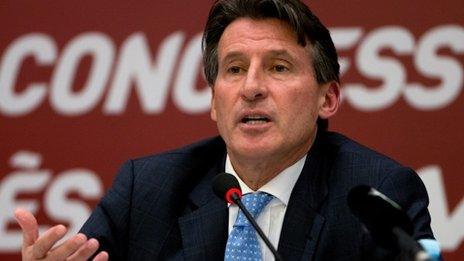Athletics doping: Wada suspends Moscow anti-doping lab
- Published
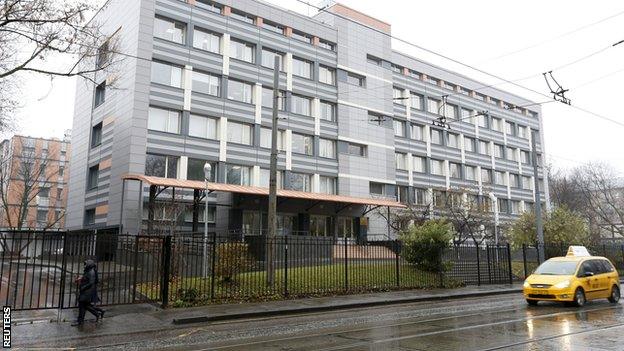
This building houses the laboratory led by Grigory Rodchenkov
The Moscow Antidoping Center has had its accreditation suspended by the World Anti-Doping Agency (Wada).
The move was one of the key suggestions of a Wada, external commission report examining allegations of doping, cover-ups, and extortion in Russian athletics.
The ban, which takes immediate effect, prohibits the centre from carrying out any Wada-related anti-doping activity.
The centre may appeal against the ban to the Court of Arbitration for Sport within 21 days of receipt of notice.
"The Moscow laboratory is provisionally suspended, and the status of the laboratory's accreditation beyond that will be decided by a disciplinary committee which will be formed shortly to review the case," Wada president Sir Craig Reedie said.
In Wada's independent commission report,, external which was published on Monday, officials from the Moscow laboratory were accused of intentionally and maliciously destroying more than 1,400 samples after receiving written notification from the anti-doping organisation to preserve target samples.
The report also advocated the permanent removal of the laboratory's director Grigory Rodchenkov, whom it accuses of asking for and accepting bribes and intentionally destroying samples he was told to keep.
Following the closure of the laboratory, all samples will be transported to an alternative Wada-accredited facility.
'Ban officials, not athletes'
Meanwhile, banned Russian athlete Liliya Shobukhova has criticised the commission's recommendation that all Russian athletes should be banned from competition, stating that punishment should only be handed out to officials involved in doping.
The 37-year-old, who was excluded for life from all the world's major marathons because of doping, but had a separate doping ban cut in August, external after agreeing to cooperate with the Wada investigation, told Russian daily Sport Express: "I just don't understand this recommendation by Wada.
Russia doping crisis in 60 seconds
"The athletes are not connected to this at all. How is it possible to deprive young athletes, who are not to blame, of the right to compete at the Olympic Games?"
The runner said former Russian Athletics Federation head Valentin Balakhnichev and coach Alexei Melnikov should be the ones to face justice.
"We [the athletes] have worked hard for years. We've risked our health to win medals, while Balakhnichev and Melnikov profited from our hard work," she added.
Kremlin spokesman Dmitry Peskov called the commission's findings "rather groundless", while sports minister Vitaly Mutko said Russia should not be singled out as the only country with a doping problem.
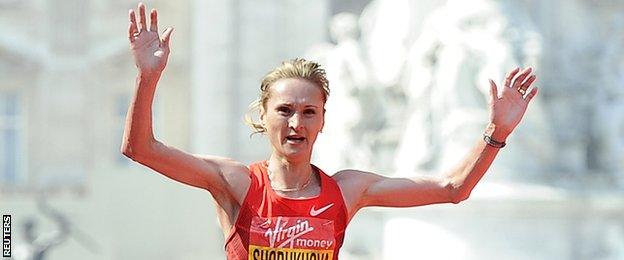
Liliya Shobukhova crosses the finish line in second place at the 2011 London Marathon
- Published10 November 2015
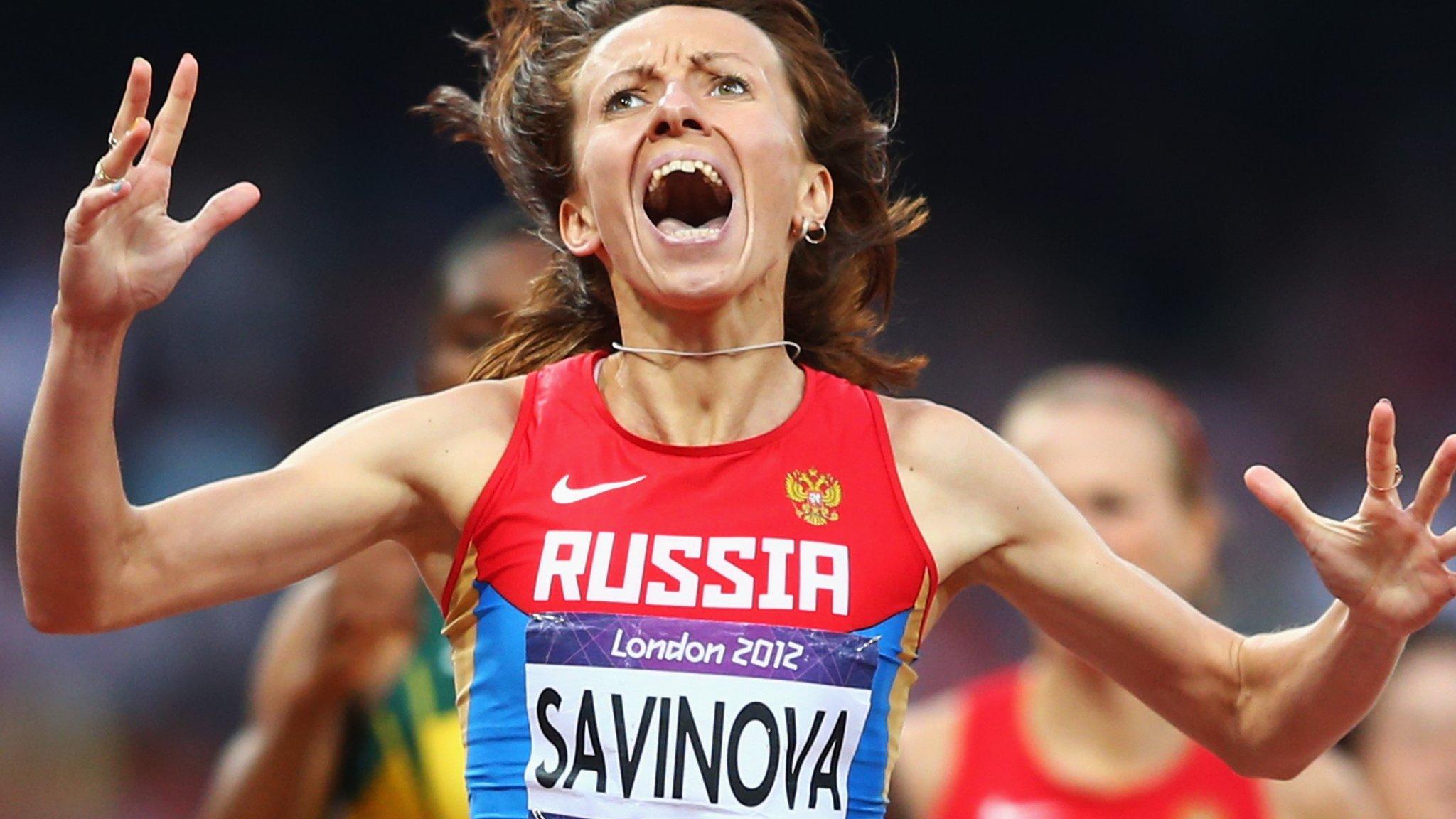
- Attribution
- Published10 November 2015
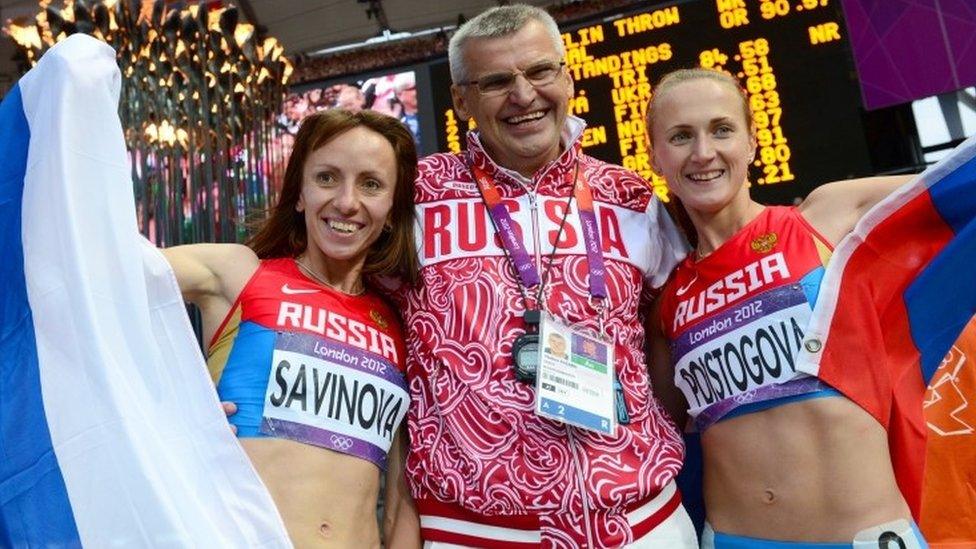
- Published9 November 2015
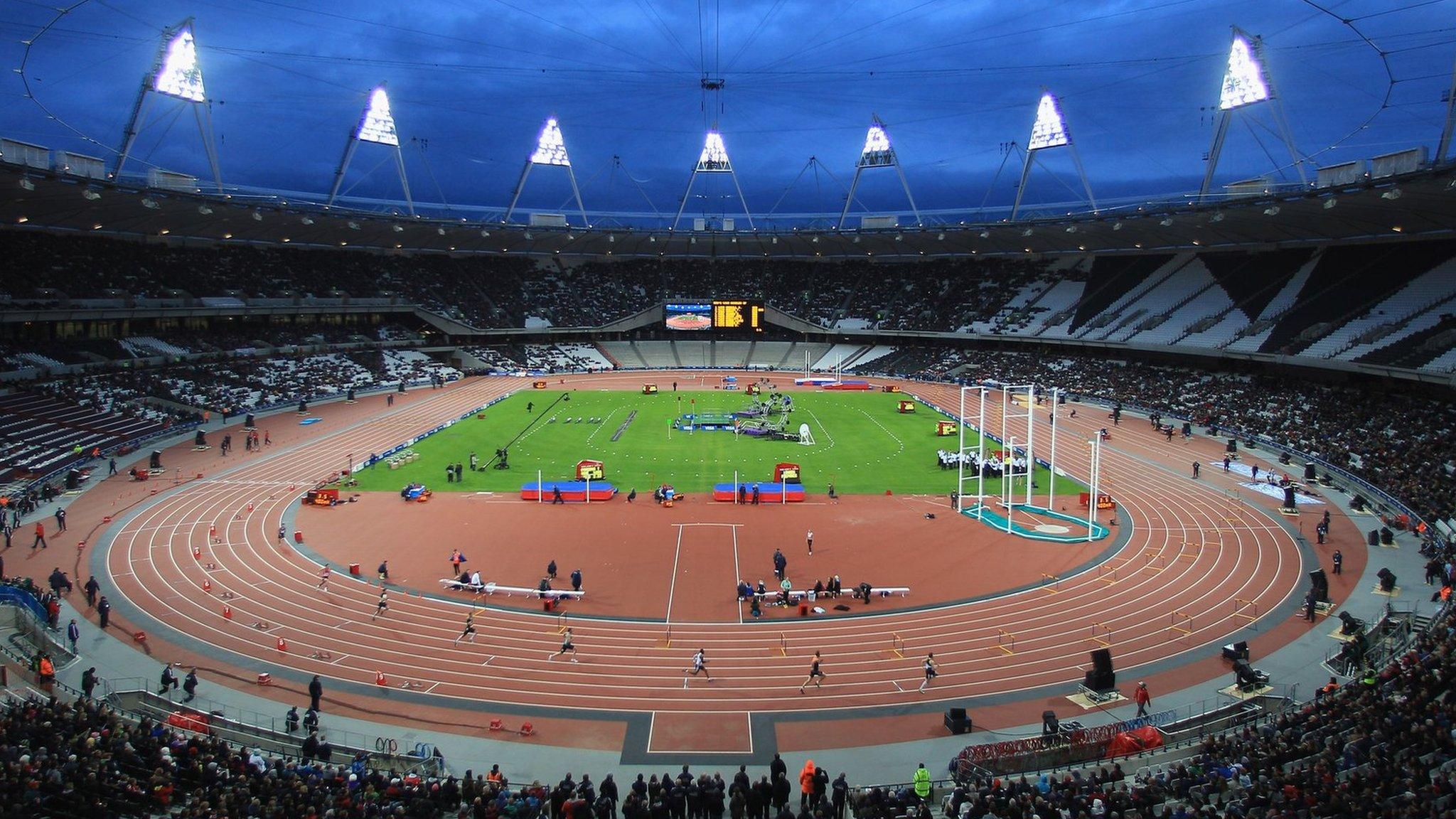
- Attribution
- Published9 November 2015
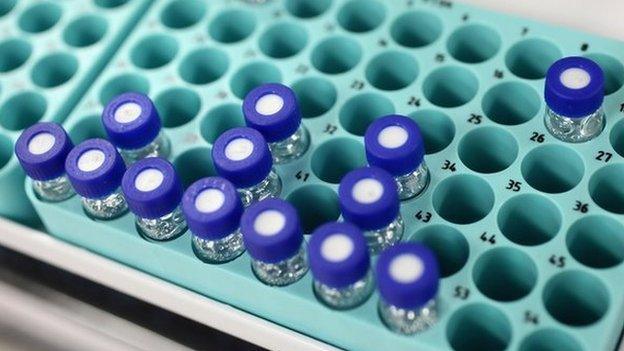
- Published8 November 2015
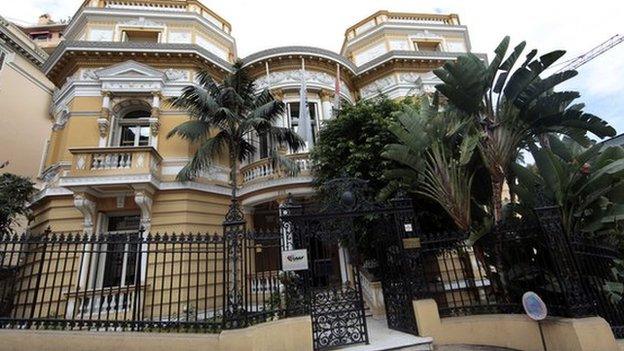
- Published7 November 2015
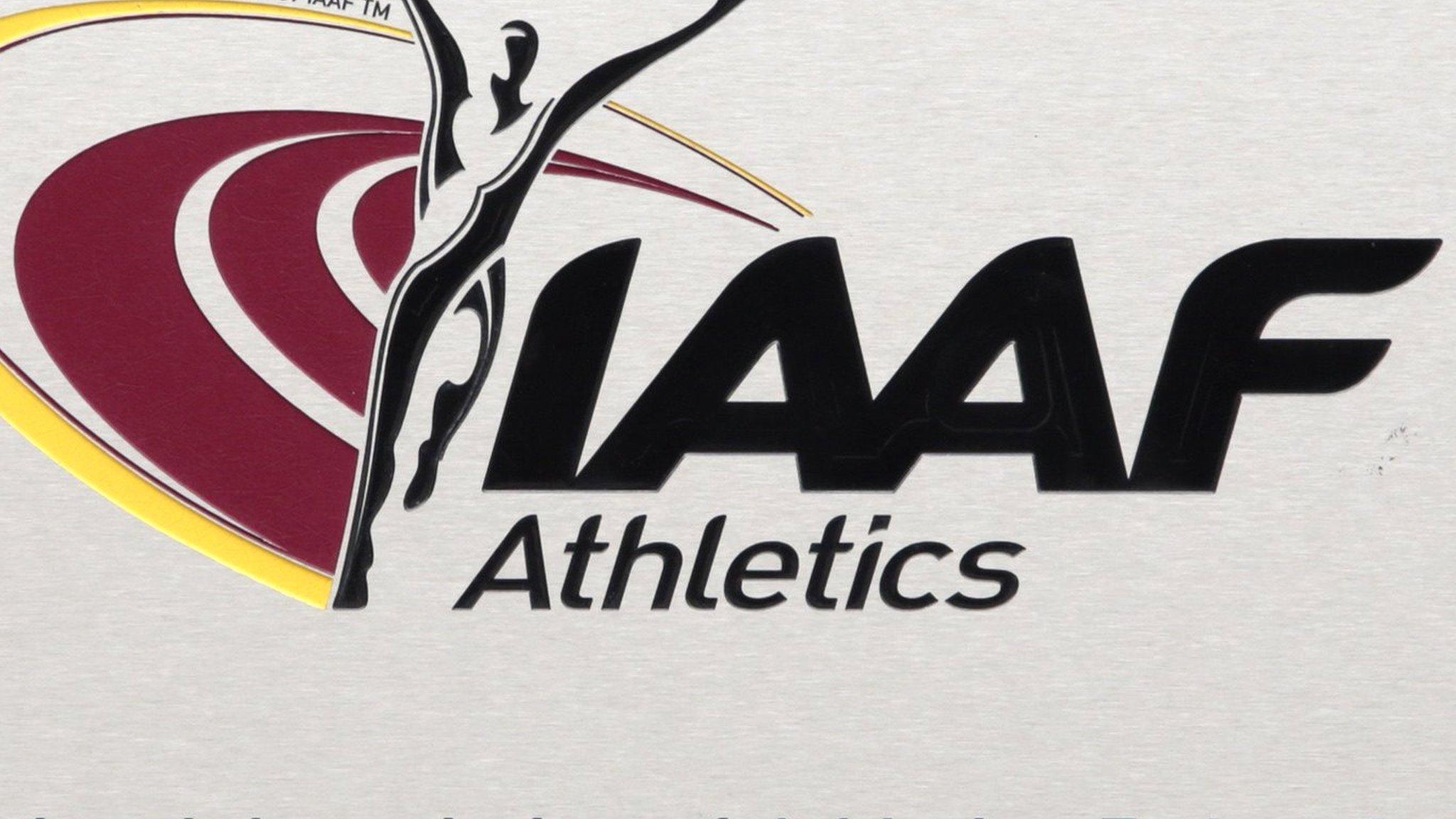
- Published6 November 2015
